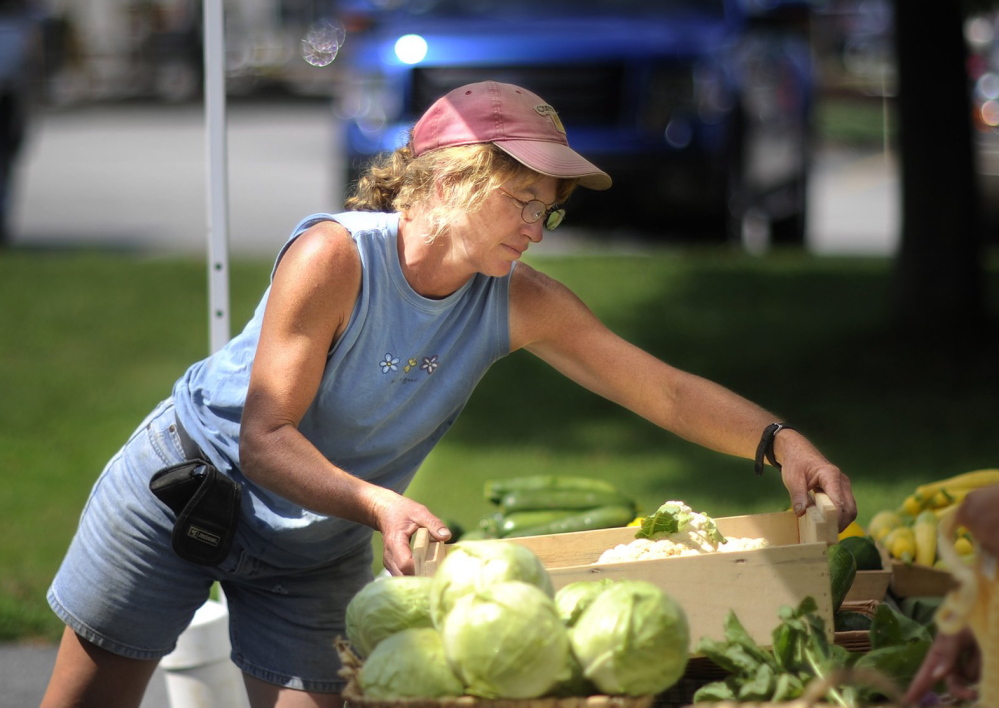The U.S. Food and Drug Administration said Thursday that it will revisit proposed regulations for ensuring produce safety, a relief for Maine farmers and lawmakers who had protested that they would be onerous, unnecessary and possibly drive small-scale farmers out of business.
“I am glad to see that they have backed off,” said Pete Karonis, owner of Fairwinds Farm in Topsham.
In a statement, the FDA said “our thinking has evolved” on the Food Safety Modernization Act’s rules on produce safety and promised to make “significant changes,” coming back with a second set of regulations by early summer. That decision was spurred by an extensive listening tour throughout the country, including a visit in August with Maine farmers.
“It’s great that they heard those messages,” said Laughlin Titus, a crop consultant who works with farmers throughout the state.
All four members of Maine’s congressional delegation had appealed to the FDA in a November letter expressing concerns that the regulations as proposed would be “severely detrimental” to small farmers. Independent Sen. Angus King said in a statement that he was “very encouraged” by the FDA’s willingness to revisit the rules while U.S. Rep. Chellie Pingree, a Democrat, in a statement hailed it as a “major victory.” Pingree, who owns a farm on North Haven, spoke at an August public forum with FDA representatives, attended by 150 farmers and producers. She urged the FDA to reconsider rules that would have lumped small farms – those like Fairwinds that sell a variety of vegetables and greens at farmer’s markets in Maine – in the same category as major single-crop farms nationwide.
“It’s great that they heard those messages,” said crop consultant Laughlin Titus. Although Maine was at the end of the FDA’s listening tour, he credits agency officials with un derstanding the state’s agricultural diversity. “There are very few farms in Maine that grow only one thing, which made complying with all of these regulations hard,” he said.
The key provisions the FDA will revisit are those of water quality standards and testing, which would have had farmers testing every water source on a monthly basis instead of the current practice of three times a year; standards for using raw manure and compost on crops; certain provisions affecting mixed-use facilities (say, a farm that grows produce and also raises pigs), and procedures for qualifying for certain exemptions.
“The water testing in particular was a killer – the time and expense of doing it,” Titus said. Some estimates had put the cost of compliance with all the new regulations at more than $13,000 annually, even for a smaller farm, although Titus questioned whether that figure was realistic or on the high end.
“But it is a time issue,” he said. “There is nobody farming in Maine in the middle of the growing season who has a spare moment.”
The proposed regulation on use of manure would have required farmers to allow 270 days between application and harvesting, which Titus said wouldn’t have been smart farming, given Maine’s short growing season. “That is counter to good nutrient management,” he said. “You could end up with a loss of nutrients.”
After the new proposed regulations are released in 2014, there will be another comment period.
Mary Pols can be contacted at 791-6456 or at:
mpols@pressherald.com
Copy the Story LinkSend questions/comments to the editors.




Success. Please wait for the page to reload. If the page does not reload within 5 seconds, please refresh the page.
Enter your email and password to access comments.
Hi, to comment on stories you must . This profile is in addition to your subscription and website login.
Already have a commenting profile? .
Invalid username/password.
Please check your email to confirm and complete your registration.
Only subscribers are eligible to post comments. Please subscribe or login first for digital access. Here’s why.
Use the form below to reset your password. When you've submitted your account email, we will send an email with a reset code.